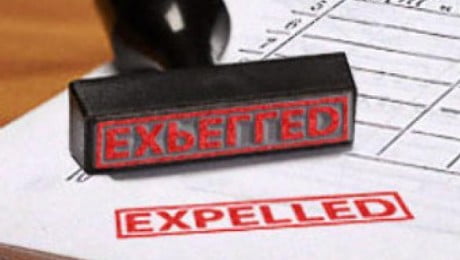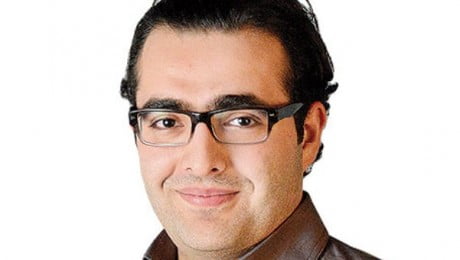Keyword: Turkey

Turkish paper says journalist expelled for criticizing Erdogan
“A body linked to the prime minister received a tip that I insulted high-level officials and informed the Interior Ministry (which) decided to deport me,” Zeynalov said by phone from the Azeri capital Baku, adding his application to renew his permit to work as a journalist in Turkey had been denied last month.

Gülen movement’s silent majority
After all, it is not difficult to understand that the reasons pushing so many people so far from home have been a love of service and a love of their own country. During the course of my travels, I also had the chance to meet a few of the teachers dedicated to their service and to teaching in these schools. Most of them had sacrificed some of their own opportunities so that they could simply contribute to the schools at which they are working.

MP close to Gülen quits ruling AKP, slams accusations against Islamic scholar
İşbilen became the seventh member to resign from the AKP since the massive graft scandal went public on Dec. 17 and the ninth since the test prep school row that created the rift between Gülen’s Hizmet (Service) movement and the government. The lawmaker, who is known for his closeness to the movement, said he has known Gülen for more than 50 years and has never heard such harsh words being directed against him.

Erdogan Moves to Shut Prep Schools in Blow to Gulen Followers
The issue is important to Gulen’s followers, who teach about 400,000 of the 1.2 million prep school students. The schools offer additional training to students preparing for exams from elementary schools to universities.
Erdogan has so far removed thousands of police officers and prosecutors on suspected ties to Gulen’s movement, while pro-government media has targeted companies for alleged links to the cleric.

Deputy slams AK Party with creating crisis as he resigns from party
Announcing his resignation at a press conference in Parliament, İşbilen slammed AK Party leader and Prime Minister Recep Tayyip Erdoğan for his “dregatory and remarks” against Turkish Islamic scholar Fethullah Gülen and criticized Erdoğan’s government over the corruption scandal.

Academics sign statement saying ‘rule of law suspended’
Professor Ayhan Aktar, Professor Ersin Kalaycıoğlu and Professor Yasemin İnceoğlu, as well as 147 other academics, signed a statement saying that the ruling Justice and Development Party (AK Party) government cannot ignore corruption allegations by making up claims of a “parallel state” — which has no meaning in political science or law — and placing all responsibility of unlawful acts on the Hizmet movement, which was inspired by Turkish Islamic scholar Fethullah Gülen.

Today’s Zaman journalist faces deportation [from Turkey] over critical tweets on government
Zeynalov, a national of Azerbaijan, has been put on a list of foreign individuals who are barred from entering Turkey under Law No. 5683, because of “posting tweets against high-level state officials,” The move comes in an already-troubling atmosphere for media freedom. Late on Wednesday, Parliament passed a controversial bill tightening government control over the Internet in a move that critics say is aimed at silencing dissent.

UNESCO Global Monitoring Report and Turkish Schools
The Turkish schools around the world offers practical perspectives and practices in redefining “the human” and his needs, reintegrating him into society, overcoming the physical and methodological obstacles to education and leading a robust performance in the path to global peace. Although the report correlates the education crisis at first glance with poverty and social background, education remains as the number-one problem, in a varying extent, in the developed countries as well. What needs to be done is to convey how the Turkish schools are tackling or minimizing many educational problems and, finally, to find out what aspects of the schools’ methods can apply to public schools.

Is the March 30 referendum in danger?
It has become very evident that some businessmen who benefitted illegally in major state tenders acquired independent media, a person very close to Erdoğan was appointed as the editor-in-chief and that this media organ became a mouthpiece of Erdoğan. Independent civil society groups such as the Turkish Industrialists and Businessmen’s Association (TÜSİAD) and the Hizmet movement are constantly depicted as traitors and the puppets of international dark forces by Erdoğan.

President Gül dismisses calls to help tackle political turmoil
During a press conference held on Monday, the GYV, whose honorary chairman is Turkish Islamic scholar Fethullah Gülen, stated that a hate crime is being carried out against the Hizmet movement in Turkey and called on President Gül to take the initiative to investigate the executive branch’s recent attempts to render the judiciary dysfunctional.

The Gülen Movement and Turkish Soft Power*
The Gülen approach to education aptly demonstrates the group’s global strategy—Gülen movement schools are open to both Turkish migrants and citizens of host countries, and they avoid advancing a religious agenda. These schools aim to help Turkish migrants succeed in their host societies without losing sight of their Turkish roots, and at the same time they promote social unity by serving the needs of migrants and local students alike. The success of Gülen movement schools stems both from the success of the students (and the satisfaction of the parents) and from the prestige and goodwill they enjoy among local and political authorities for promoting integration and acting as a social mediator.

Should Hizmet establish a political party?
If the Hizmet movement had believed that services to Turkey can best be provided through politics, it would have done so from the beginning. Civil society has a special place in democracies. One can also serve the country by rejecting democratic pressures and upholding rule of law and individual freedoms.




















